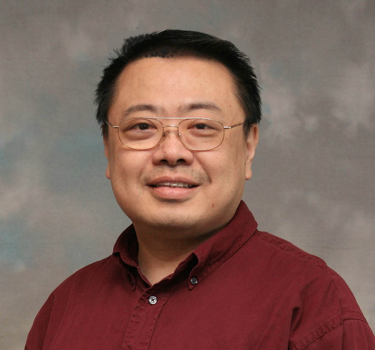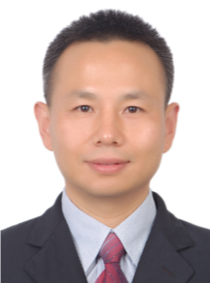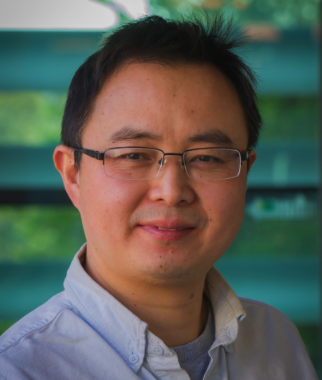
(IEEE EdgeCom 2018)
June 22-24, 2018, Shanghai, China.


Sun-Yuan Kung IEEE Life Fellow, Princeton University, USA |
Bio: Professor S.Y. Kung received his Ph.D. Degree in Electrical Engineering from Stanford University in 1977. In 1974, he was an Associate Engineer of Amdahl Corporation, Sunnyvale, CA. From 1977 to 1987, he was a Professor of Electrical Engineering-Systems of the University of Southern California, L.A. Since 1987, he has been a Professor of Electrical Engineering at the Princeton University. In addition, he held a Visiting Professorship at the Stanford University (1984); and a Visiting Professorship at the Delft University of Technology (1984); a Toshiba Chair Professorship at the Waseda University, Japan (1984); an Honorary Professorship at the Central China University of Science and Technology (1994); and a Distinguished Chair Professorship at the Hong Kong Polytechnic University since 2001. His research interests include VLSI array processors, system modelling and identification, neural networks, wireless communication, sensor array processing, multimedia signal processing, bioinformatic data mining and biometric authentication. Professor Kung has authored more than 400 technical publications and numereous textbooks, Professor Kung has co-authored more than 400 technical publications and numerous textbooks including "VLSI and Modern Signal Processing," with Russian translation, Prentice-Hall (1985), "VLSI Array Processors", with Russian and Chinese translations, Prentice-Hall (1988); "Digital Neural Networks", Prentice-Hall (1993) ; "Principal Component Neural Networks", John-Wiley (1996); and "Biometric Authentication: A Machine Learning Approach", Prentice-Hall (2004). Professor Kung is a Fellow of IEEE since 1988. He served as a Member of the Board of Governors of the IEEE Signal Processing Society (1989-1991). He was a founding member of several Technical Committees (TC) of the IEEE Signal Processing Society , including VLSI Signal Processing TC (1984), Neural Networks for Signal Processing TC (1991) and Multimedia Signal Processing TC (1998), and was appointed as the first Associate Editor in VLSI Area (1984) and later the first Associate Editor in Neural Network (1991) for the IEEE Transactions on Signal Processing. He presently serves on Technical Committees on Multimedia Signal Processing. Since 1990, he has been the Editor-In-Chief of the Journal of VLSI Signal Processing Systems. Professor Kung was a recipient of IEEE Signal Processing Society's Technical Achievement Award for his contributions on "parallel processing and neural network algorithms for signal processing" (1992); a Distinguished Lecturer of IEEE Signal Processing Society (1994) ; a recipient of IEEE Signal Processing Society's Best Paper Award for his publication on principal component neural networks (1996); and a recipient of the IEEE Third Millennium Medal (2000).
|

Prof. Edwin Sha Chang-Jiang Honorary Chair Professorship, China Thousand-Talent Chair Professorship, Distinguished Professor, East China Normal University, Shanghai, China |
Bio: Edwin Hsing-Mean Sha received BS degree from National Taiwan University in 1986, and Ph.D. degree from the Department of Computer Science, Princeton University, USA in 1992. From August 1992 to August 2000, he was with the Department of Computer Science and Engineering at University of Notre Dame, USA. Since 2000, he has been a tenured full professor at the University of Texas at Dallas. From 2012 to 2017, he served as the Dean of College of Computer Science at Chongqing University, China. He is currently a tenured distinguished professor at East China Normal University, Shanghai, China. He has published more than 400 research papers in refereed international conferences and premier journals including over 60 IEEE/ACM Transactions articles. He served as program committee members and chairs of numerous international conferences and editors of many journals. He received many awards including Teaching Award, Microsoft Trustworthy Computing Curriculum Award, NSF CAREER Award, NSFC Overseas Distinguished Young Scholar Award, Chang-Jiang Honorary Chair Professorship, China Thousand-Talent Chair Professorship, etc. He received the ACM TODAES Best Paper Award from ACM Transactions on Design Automation of Electronic Systems, the Editor's pick of the year of 2016 from IEEE Transactions on Computers for his work on SIMFS, and many other best paper awards.
|

Dr. Xiaodong Wang IEEE Fellow Columbia University, USA |
Bio:
Xiaodong Wang received the Ph.D degree in Electrical Engineering from Princeton University. He is a Professor of Electrical Engineering at Columbia University in New York. Dr. Wang’s research interests fall in the general areas of signal processing and communications, and has published extensively in these areas. Among his publications is a book entitled “Wireless Communication Systems: Advanced Techniques for Signal Reception”, published by Prentice Hall in 2003. His current research interests include wireless communications, statistical signal processing, and genomic signal processing. Dr. Wang received the 1999 NSF CAREER Award, the 2001 IEEE Communications Society and Information Theory Society Joint Paper Award, and the 2011 IEEE Communication Society Award for Outstanding Paper on New Communication Topics. He has served as an Associate Editor for the IEEE Transactions on Communications, the IEEE Transactions on Wireless Communications, the IEEE Transactions on Signal Processing, and the IEEE Transactions on Information Theory. He is a Fellow of the IEEE and listed as an ISI Highly-cited Author.
|

Professor Geyong Min University of Exeter, U.K. |
Bio: Professor Geyong Min is a Chair in High Performance Computing and Networking and the academic lead of Computer Science in the College of Engineering, Mathematics and Physical Sciences at the University of Exeter, UK. His recent research has been supported by European FP6/FP7, UK EPSRC, Royal Academy of Engineering, Royal Society, and industrial partners including Motorola, IBM, Huawei Technologies, INMARSAT, and InforSense Ltd. Prof. Min is the Co-ordinator of two recently funded FP7 projects: 1) Quality-of-Experience Improvement for Mobile Multimedia across Heterogeneous Wireless Networks; and 2) Cross-Layer Investigation and Integration of Computing and Networking Aspects of Mobile Social Networks. As a key team member and participant, he has made significant contributions to several EU funded research projects on Future Generation Internet. He has published more than 200 research papers in leading international journals including IEEE/ACM Transactions on Networking, IEEE Journal on Selected Areas in Communications, IEEE Transactions on Communications, IEEE Transactions on Wireless Communications, IEEE Transactions on Multimedia, IEEE Transactions on Computers, IEEE Transactions on Parallel and Distributed Systems, and at reputable international conferences, such as SIGCOMM-IMC, ICDCS, IPDPS, GLOBECOM, and ICC. He is an Associated Editor of several international journals, e.g., IEEE Transactions on Computers. He served as the General Chair/Program Chair of a number of international conferences in the area of Information and Communications Technologies.
|

Dr. Shui Yu School of Information Technology, Deakin University, Australia |
Bio: Shui Yu is currently an Associate Professor of School of Information Technology, Deakin University, Australia. Dr Yu’s research interest includes Security and Privacy, Networking, Big Data, and Mathematical Modelling. He has published two monographs and edited two books, more than 200 technical papers, including top journals and top conferences, such as IEEE TPDS, TC, TIFS, TMC, TKDE, TETC, ToN, and INFOCOM. Dr Yu initiated the research field of networking for big data in 2013. His h-index is 29. Dr Yu actively serves his research communities in various roles. He is currently serving the editorial boards of IEEE Communications Surveys and Tutorials, IEEE Communications Magazine, IEEE Internet of Things Journal, IEEE Communications Letters, IEEE Access, and IEEE Transactions on Computational Social Systems. He has served more than 70 international conferences as a member of organizing committee, such as publication chair for IEEE Globecom 2015, IEEE INFOCOM 2016 and 2017, TPC chair for IEEE BigDataService 2015, and ACSW 2017. He is a Senior Member of IEEE, a member of AAAS and ACM, the Vice Chair of Technical Committee on Big Data of IEEE Communication Society, and a Distinguished Lecturer of IEEE Communication Society.
|